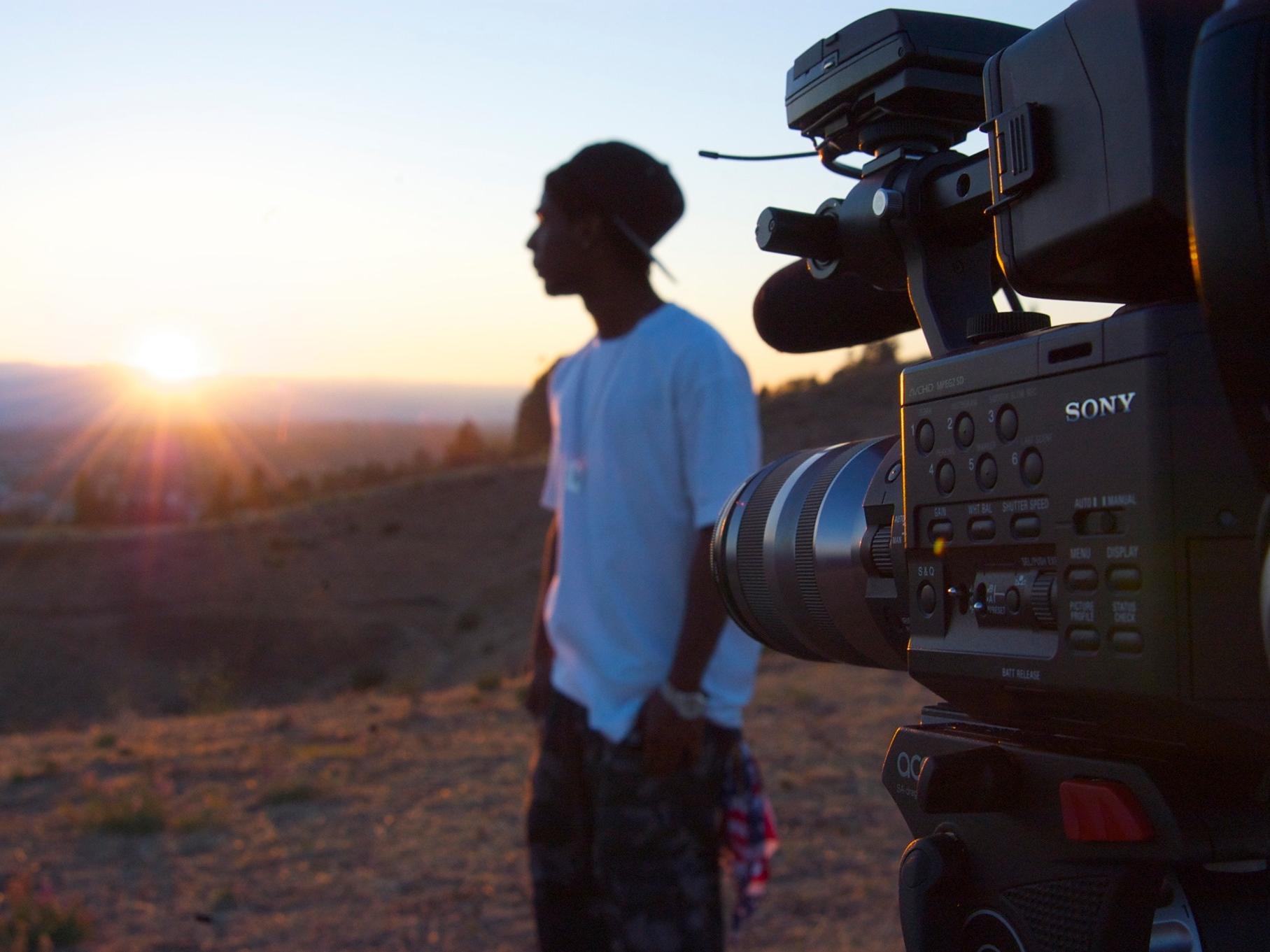About Film Hub Wales
Film Hub Wales (FHW) celebrates cinema. It supports organisations that screen films, with the aim of bringing the best British and international films to audiences across Wales and the UK. FHW is part of a UK-wide Film Audience Network, consisting of eight hubs funded by the British Film Institute. It leads the UK Inclusive Cinema strategy on behalf of the network.
There are over 300 organisations in Wales that screen films to public audiences, including over 70 year-round independent cinemas. Essentially, it's our job to support them. We do this through four main areas of activity: training and networking, R&D (where our Clwstwr project sits), advocacy and audience development.
Our thinking behind our Clwstwr project started back in 2014
When we launched the hub in early 2014, there were few support mechanisms for films with Welsh connections to reach cinemas. Many were self-distributing their films. For those films that picked up a distributor, that distributor might not have been aware of the Welsh connection. In turn, the cinemas showing it might not have known either. So, we set out to try to improve this process through our Made in Wales strategy.
In the first four years, we underwrote the cost to screen Welsh films and worked hard to boost awareness of them. We saw an increase in the demand for Welsh film, but structural issues kept surfacing. For example, there was a lack of funds for marketing and there wasn’t enough solid data about how Welsh films perform internationally. We felt that better communication along the film chain could improve the message to audiences.
We applied to Clwstwr for a seed grant to explore the idea of Welsh film branding
Some countries have central information points where anyone can find out where to watch regional films or how to get into the film industry. We wanted to use Clwstwr funding to think about the best next steps for Wales and whether we could increase awareness of Welsh film by building a brand around it.
With the seed grant, we brought specialists on board
After the bid was approved, we put an external brief out to call for approaches to the idea. We selected a Wales-based research company called Wavehill. We also asked Pontio Arts Centre and Bangor University to work collaboratively through a brand testing exercise and an exploration of Welsh identity.
Our project had a number of research stages
Pontio started researching perceptions of Welsh identity. Meanwhile, we set research questions with Wavehill to establish what we needed to find out. We then brought together over 20 screen industry partners to participate in a workshop to find out how a Welsh film brand might support their organisations. A sector-wide bilingual survey followed, which went to our partners (these included screen agencies, UK distributors and filmmakers). Alongside this, Pontio worked on brand perception. They had intended for students to test artwork for our hypothetical brand with focus groups, but this was unfortunately interrupted by COVID-19.
It was fascinating to look at international best practice
Wavehill created three case studies from international territories to inspire our next steps. We looked at Screen Ireland, Telefilm Canada and the Swedish Film Institute. While they are larger territories, with greater funding and international strategy departments, their approaches were exciting. They tend to offer funding for exhibition, distribution and accessibility once a film is complete. They work on audience development strategies throughout the film's development and even after completion by studying performance and creating anticipation amongst audiences.
Once we’d finished our research, we collated and analysed everything
The research outcomes and case studies were compiled into an 80-page report and summarised in an infographic. The report showed broad support for brand development, along with steps we could take to integrate marketing into Welsh screen strategy. It means that we shouldn’t miss as many opportunities to celebrate Wales on screen.
We launched the report in December 2020
I look forward to seeing what the response is like throughout 2021, especially as we are starting a new Made in Wales Officer role supported by Creative Wales. Exhibition often exists on shoestring budgets and can be less visible than film production. We hope this report emphasises the crucial role it plays in the film chain. We can't presume that if a film is good enough, it will be seen.
I hope that, in the future, Welsh film is recognised internationally
The research has given us time to think about what the ideal scenarios would be. We want audiences and industry alike to be able to find out what films are being made in Wales, the best routes to make a film, how to get it seen, who the diverse voices are behind them, what Welsh life and identity looks like now and where the best cinemas and film festivals are to watch our stories on screen. A brand could help us to share these messages internationally, enabling Welsh stories to stand alongside the best films worldwide. We've started to explore how we might make it happen.
Image © Youngun / Alex Melhuish (2018)

